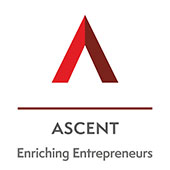Blog
Why Trust Groups Fail to Deliver?

I am an entrepreneur for the last eight years and have been running my business which is in the area of IT Solutions. As an entrepreneur, it was always a challenging and an isolated journey and I realised what I needed for guidance and support is a peer group of like-minded entrepreneurs. That’s when I came across this dynamic platform, ASCENT and became a member a year ago with an aim to impact and improve my problem-solving ability by leveraging from experiences and insights of fellow entrepreneurs. A group of like-minded entrepreneurs can help in both accelerating growth and providing ideas for new avenues of growth.
ASCENT being one such platform should ideally work for everyone who joins it. However, it is not uncommon to find entrepreneurs who may doubt the value derived from being part of ASCENT.
After being part of one such Trust Group (that’s what we call in ASCENT, a close knit of 10-12 non-competing entrepreneurs who believe in Learning from Doers), I am excited to share a few of my learning on how we can make ASCENT or any such peer groups add value and meaning for all of us.
I have broadly classified the characteristics needed in an entrepreneur and the group for it to work well into four categories:
- Capacity
- Clarity
- Commitment
- Camaraderie
Capacity
As a participating member of ASCENT, one needs to be decision maker of a scalable business and should be open to new ideas and make changes if necessary. Some cases that may not meet the capacity criterion include:
- Start-up businesses which are not yet profitable and are seeking capital
- Small businesses which do not affect the economic prosperity of the entrepreneur or are too small as defined by ASCENT
- Businesses that are inherently non-scalable due to constraints not directly under the control of the entrepreneur
- Members who are not able to make significant changes to their businesses which will, in turn, affect their ability to leverage ASCENT as a decision-making unit and progress significantly
Clarity
One needs to have full clarity about the following to greatly enhance the chances of ASCENT being useful in their journey as an entrepreneur.
- What are the benefits of being part of peer learning platform like ASCENT?
- What are the key take ways of Trust Group?
- What to expect from ASCENT Value Adds (other curated programmes and initiatives like mentoring and funding)?
- What are the benefits one can get by networking with the larger ASCENT Cohort of 530 entrepreneur members?
- How each member can enable other members, grow and enhance the Trust Group experience as a whole?
Commitment
Each member needs to demonstrate a commitment to
- Attend meetings regularly without fail and on time.
- Be open to sharing business and personal challenges with the Trust Group.
- Be open to proactively contributing towards solving others’ business and personal issues by speaking from their own experiences and not giving ‘gyaan’
- Attend and learn from as many ASCENT Knowledge sessions and events outside the regular monthly Trust Group meetings as possible.
- Commitment to implement solutions and ideas exchanged during these Trust Group meeting, in their businesses
Camaraderie
While camaraderie is not part of any written rules of ASCENT, it is the most important trait of a successful peer group.
When members of the Trust Group see each other as someone who can be trusted and has a friendly relationship, the transition of the Trust Group interaction changes drastically from the time when the trust and relationship are not fully established.
Unity in decisions, understanding each other’s strength and weakness and adapting to them are few positive “side-effects” of a group with great camaraderie.
I believe that any entrepreneur who is looking for enrichment and primed for growth, should go ahead and apply to join for ASCENT
Name of entrepreneur: SK Vignesh, Member ASCENT
Designation: Founder and Director
Company name: Agile Cyber Solutions


